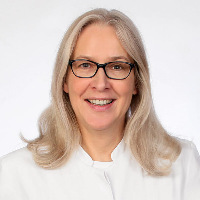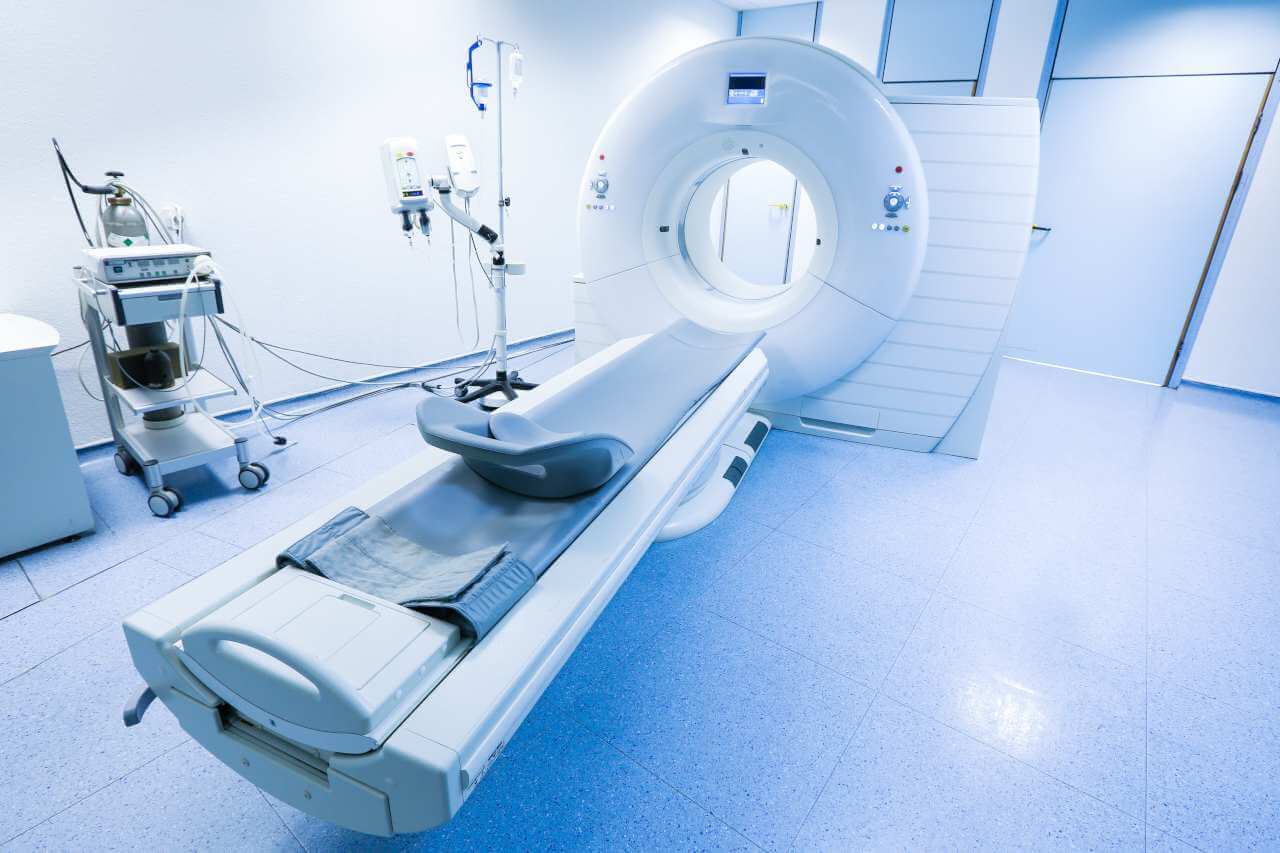
The program includes:
- Initial presentation in the clinic
- clinical history taking
- physical examination
- neurological examination
- reflexes
- muscle strength
- muscle tone
- senses of touch and sight
- coordination
- balance
- EKG, lung function tests
- laboratory tests:
- complete blood count
- biochemical analysis of blood
- enzyme tests
- inflammation indicators
- indicators blood coagulation
- muscle biopsy
- electromyography (EMG)
- brain CT/ MRI
- cerebrovascular doppler ultrasound
- consultation of related specialists
- symptomatic specific treatment
- the cost of essential medicines and materials
- nursing services
- control examinations
- full hospital accommodation
- developing of further guidance
Required documents
- Medical records
- DNA analysis (if available)
- Muscle biopsy (if available)
Service
You may also book:
 BookingHealth Price from:
BookingHealth Price from:
About the department
The Department of Adult and Pediatric Neurology, Epileptology at the Meoclinic Hospital Berlin offers the full range of medical services in these fields. The team of the department's neurologists provides comprehensive diagnostics and effective conservative treatment of various neurological disorders. The department's specialists work hand in hand with neurosurgeons, who perform surgical interventions on the brain, spinal cord, and spine. Stroke is one of the most common and dangerous neurological pathologies, so doctors pay special attention to the treatment of patients with this disease. The department also uses a special preventive screening program to assess individual stroke risks. Many neurological disorders, including stroke, provoke the development of swallowing disorders, so the department conducts special hardware diagnostics of swallowing disorders to detect the causes of disorders and assess their severity. The department's team of physicians is convinced that successful treatment outcomes can only be achieved by using an individual approach to each clinical case, so the specialists accurately plan the treatment regimen. Doctors strictly adhere to current clinical protocols and follow the recommendations of professional societies. The department is headed by Dr. med. Katharina Grohme.
Stroke is one of the most common pathologies in neurology. This is an acute cerebral blood flow disorder, which leads to the development of a neurological deficit, partial or total paralysis, loss or impairment of speech and vision, impaired memory and cognitive abilities. The department's neurologists provide modern stroke treatment, the success of which is played by the timeliness of therapeutic measures. In most cases, the department uses lysis therapy for stroke treatment. However, the specialists are convinced that the best treatment is prevention of the disease. The department offers a special stroke prevention program, including the study of the patient's medical history, clinical examination, laboratory diagnostics and imaging tests: computed tomography, magnetic resonance imaging, angiography. The doctors of the medical facility recommend regularly undergoing examinations of this kind for people over 40 years old. In addition, doctors hold consultations on lifestyle modification, which involves diet correction, weight loss in case of being overweight, smoking and alcohol cessation, as well as regular physical activity.
The department's team of doctors often admits patients with Parkinson's disease. As a rule, the disease develops in people at the age of 60 and older. The diagnostic process begins with the study of anamnesis, clinical examination and neurophysiological tests. The doctor then performs a special L-DOPA test, CT and/or MRI scanning. The symptoms and course of Parkinson's disease are individual for each patient, so the treatment regimen is developed based on the particular clinical case. In most cases, the treatment is based on the use of drugs to stop the progression of the disease, as well as individually adapted physiotherapy and occupational therapy. In severe cases, neurosurgical intervention (deep brain stimulation) may be required to treat Parkinson's disease.
An important clinical focus of the department's specialists is on the treatment of epilepsy in adults and children. Pathology is a chronic neurological disorder caused by a malfunction of the brain due to excessive electrical activity of individual neurons. The disease is accompanied by intermittent seizures. The duration of epileptic seizures can be a few seconds or a few minutes. It is noteworthy that the team of the department's neurologists has unique experience in the treatment of epilepsy in children of various age groups, including infants. Epilepsy in infants is quite rare, but provokes serious developmental disorders. The treatment of epilepsy in infants is a complex clinical task, but the department's neurologists have the necessary professional skills to provide medical care to such patients. To treat epileptic seizures in adults and children, the department's specialists prescribe anticonvulsants. As a rule, monotherapy becomes an option of choice, but a combination of several drugs is also possible. An important role in the treatment success is played by the regularity of taking drugs. In addition, therapy is quite long and lasts for several years. Patients with epilepsy need to lead a healthy lifestyle, adhere to proper nutrition and stop drinking alcohol. If drug therapy is ineffective, doctors consider surgery or vagus nerve stimulation.
The department specializes in the diagnostics and treatment of the following neurlogical disorders:
- Stroke
- Epilepsy
- Dementia
- Balance disorders and dizziness
- Multiple sclerosis
- Neuromuscular diseases
- Parkinson's disease
- Restless legs syndrome
- Sleep disorders
- Migraines and headaches
- Pain syndromes of neurological origin
- Other neurological disorders
The department's range of diagnostic and therapeutic services includes:
- Diagnostic options
- Electromyography
- Electroneuronography
- Electroencephalography
- Recording of evoked potentials
- Ultrasound scanning of extracranial and transcranial arteries
- Cerebrospinal fluid analysis
- Neuropsychological testing
- Nerve conduction velocity test
- Laboratory neurological tests
- Imaging tests of the nervous system: computed tomography and magnetic resonance imaging
- Therapeutic options
- Drug therapy with modern medicines
- Multimodal pain management with the use of drugs, physiotherapy and psychotherapy
- Injection therapy with botulinum toxin for migraine, dystonia and spasticity
- Other medical services
Curriculum vitae
Professional Career
- 1995 - 2001 Preparation for board certification, Department of Neurology at the Erfurt Hospital and Department of Psychiatry and Psychotherapy at the Dresden-Neustadt Hospital.
- 2002 - 2010 Board certification in Neurology, Epilepsy Center Kleinwachau, Radeberg.
- 2004 - 2010 Head of the Section for Intensive Video EEG Monitoring and Epilepsy Diagnostics, Epilepsy Center Kleinwachau, Radeberg.
- 2010 - 2019 Senior Physician, Center of Excellence for Somnology and Epileptology, Barmelweid Hospital, Canton of Aargau, Switzerland.
- 2013 - 2017 Physician in the Department of Somnology and Chronomedicine at the St. Hedwig Hospital Berlin.
- 2017 - 2019 Physician, Department of Neurology, Department of General Neurology at the Vivantes Humboldt Hospital Berlin.
- 2019 - 2021 Senior Physician, Department of Neurological Rehabilitation at the MEDIAN Rehabilitation Clinic Berlin Kladow.
Certificates and Additional Qualifications
- "Electroencephalography" Certificate of the German Society for Clinical Neurophysiology.
- "Epileptology Plus" Certificate of the German Society for Epileptology.
- "Somnology" Certificate of the German Society for Sleep Research and Sleep Medicine.
- Additional Qualification in Sleep Medicine from the Berlin Medical Association.
Photo of the doctor: (c) Meoclinic
About hospital
The Meoclinic Hospital Berlin is one of Germany's most renowned multidisciplinary private hospitals offering top-class and patient-centered medical care. The hospital opened its doors to patients back in 2000 and today is deservedly proud of its vast experience. It has 28 specialized departments, each of which is responsible for the treatment of a particular group of diseases. A highly professional medical team consisting of 67 doctors takes care of the health of patients. The basis of the work of the doctors of the hospital is the use of the most advanced and, if possible, sparing treatment methods. The hospital is certified according to ISO 9001:2015 standards, so patients benefit from the highest level of the quality of service, adherence to hygiene and safety standards.
The hospital includes almost all fields of modern medicine: internal medicine, general and abdominal surgery, endocrine surgery, vascular surgery, hernia repair surgery, hand surgery, plastic surgery, pediatric surgery, cardiology, pulmonology, gastroenterology, rheumatology, proctology, gynecology, urology, ophthalmology, orthopedics, neurology, neurosurgery. To provide surgical treatment, the hospital has three high-tech surgical suites, which perform both minimally invasive interventions and DaVinci robot-assisted interventions, as well as the most complex operations lasting several hours. In addition, the hospital has an advanced Radiology Center with innovative devices for computed tomography, magnetic resonance imaging, ultrasound diagnostics and X-ray scanning. These resources allow providing accurate diagnostics and effective treatment of the highest European level.
Despite the fact that the hospital has advanced technologies and modern infrastructure, the focus of the medical staff is on the patient – his needs, wishes and well-being. During the treatment in this medical center, patients are surrounded by care, comfort, and they are treated with maximum respect and understanding. The doctors of the hospital use all their professionalism and medical knowledge for the benefit of patients, saving lives even in particularly complex cases.
Photo: (с) depositphotos
Accommodation in hospital
Patients rooms
The patients of the Meoclinic Hospital Berlin live in well furnished rooms, corresponding to the level of luxury five-star hotels. There is a fantastic view from the windows of the patient rooms on the Gendarmenmarkt, the Reichstag, the Friedrichstrasse or the courtyard of the hospital. The hospital has a pleasant atmosphere, which is also facilitated by soothing colors. The standard patient rooms include a comfortable bed, a bedside table, a desk and chairs, a wardrobe with a built-in safe for storing valuables, air conditioning, a minibar, a TV and a telephone. Free Wi-Fi is available in the patient rooms. Each patient room has an ensuite bathroom with shower and toilet, heated floor. There are bath slippers, towels and toiletries in the bathroom. A bathrobe, shower caps, shaving kit and hairdryer are available upon request.
Meals and Menus
The patients of the hospital are offered tasty and healthy three meals a day: breakfast, lunch and dinner. The menu mainly includes vegetable, fruit, poultry and fish dishes. Each patient has a choice of several menus, including traditional Russian and Arabic cuisine, as well as kosher and vegetarian meals.
If for some reason you do not eat all foods, you will be offered an individual menu. Please inform the medical staff about your dietary preferences prior to treatment.
Further details
Standard rooms include:
Accompanying person
Your accompanying person may stay with you in your patient room or at the hotel of your choice during the inpatient program.
Hotel
You may stay at the hotel of your choice during the outpatient program. Our managers will support you for selecting the best option.




